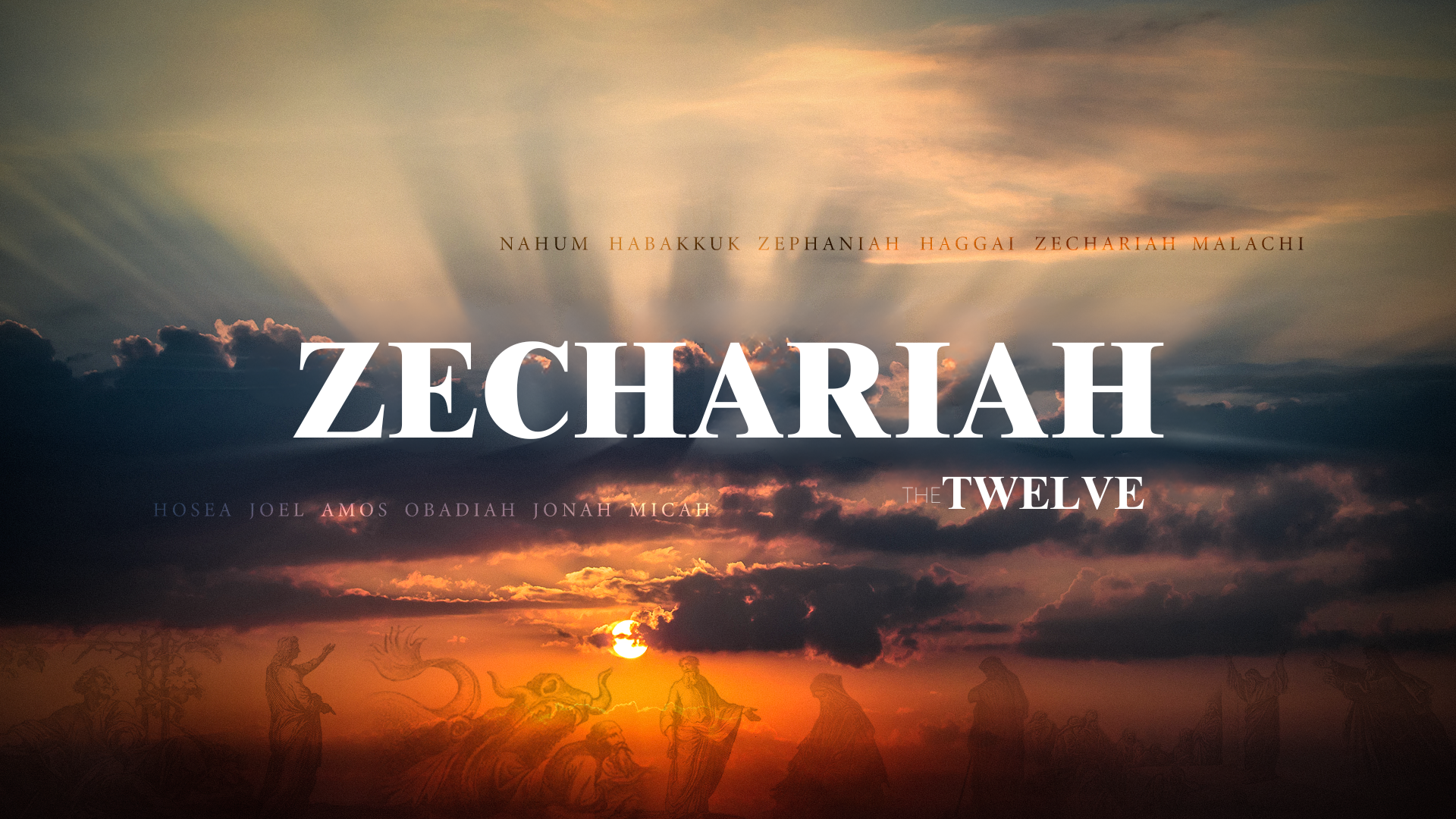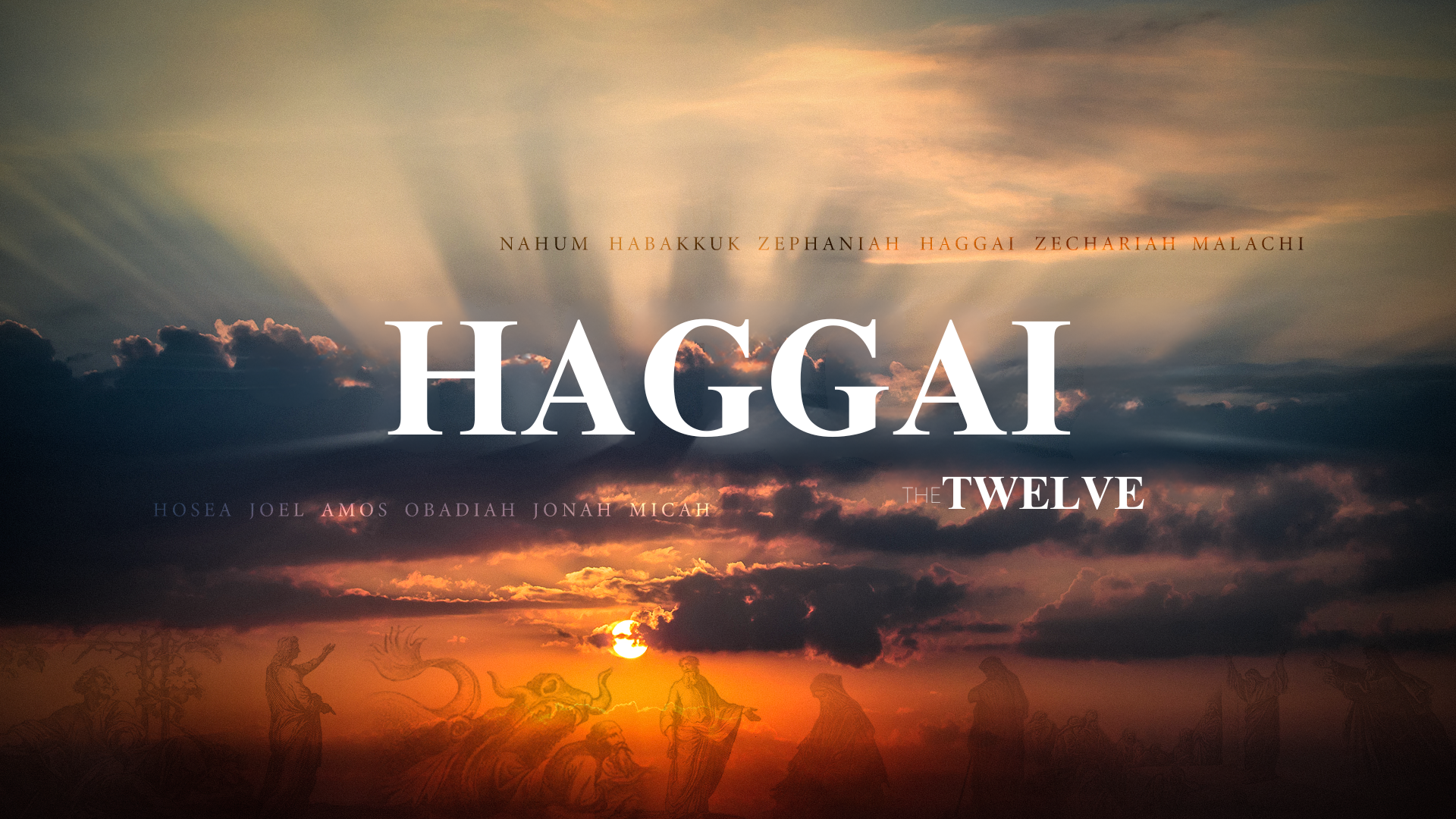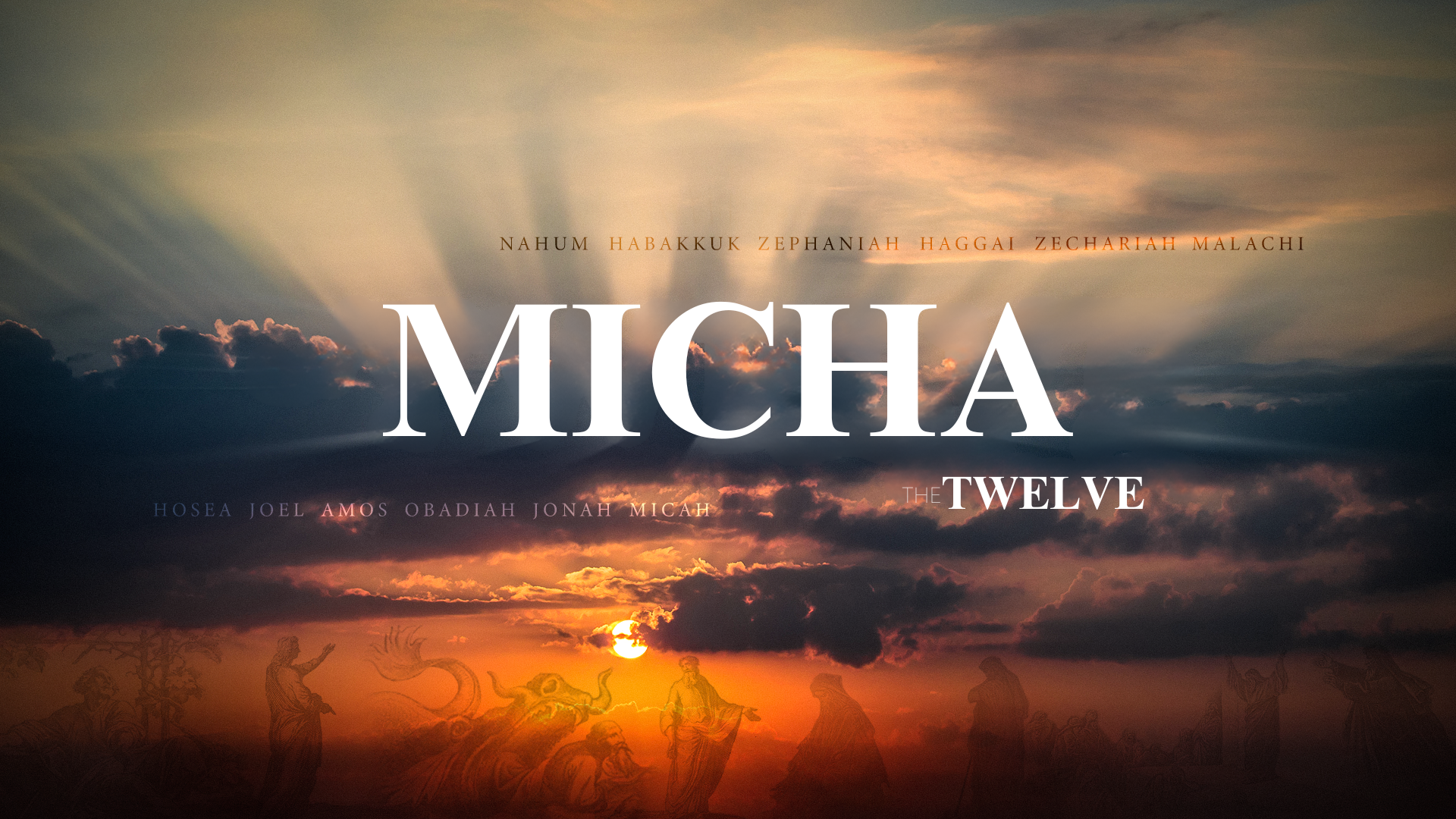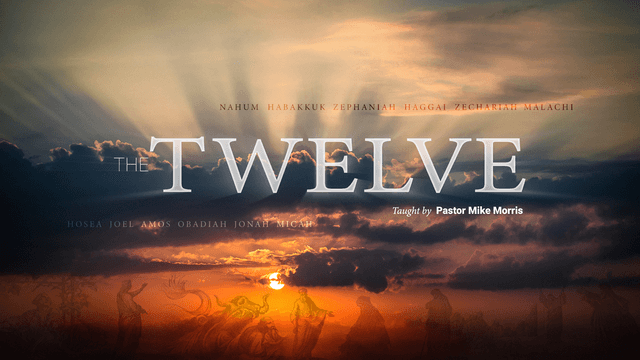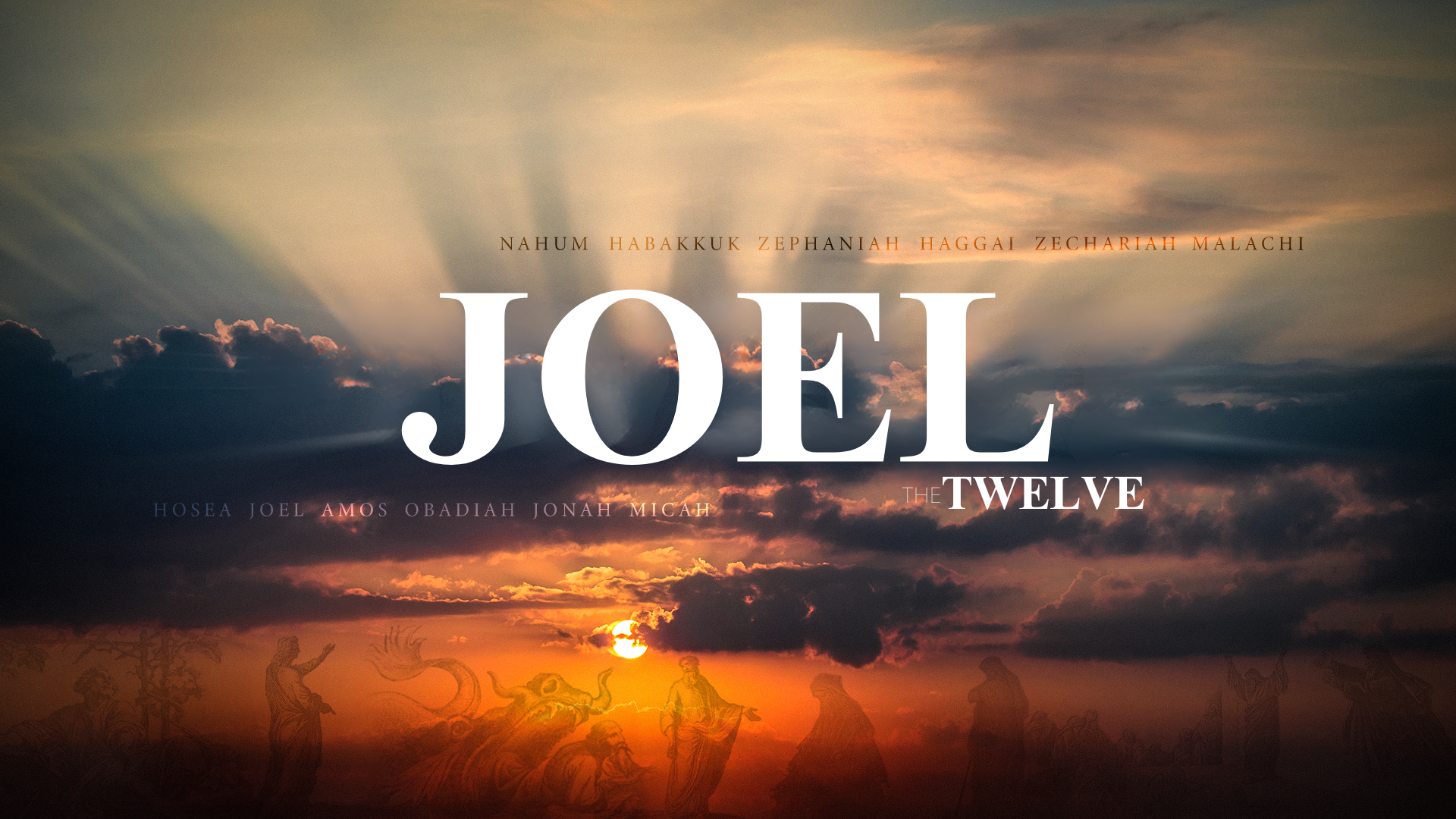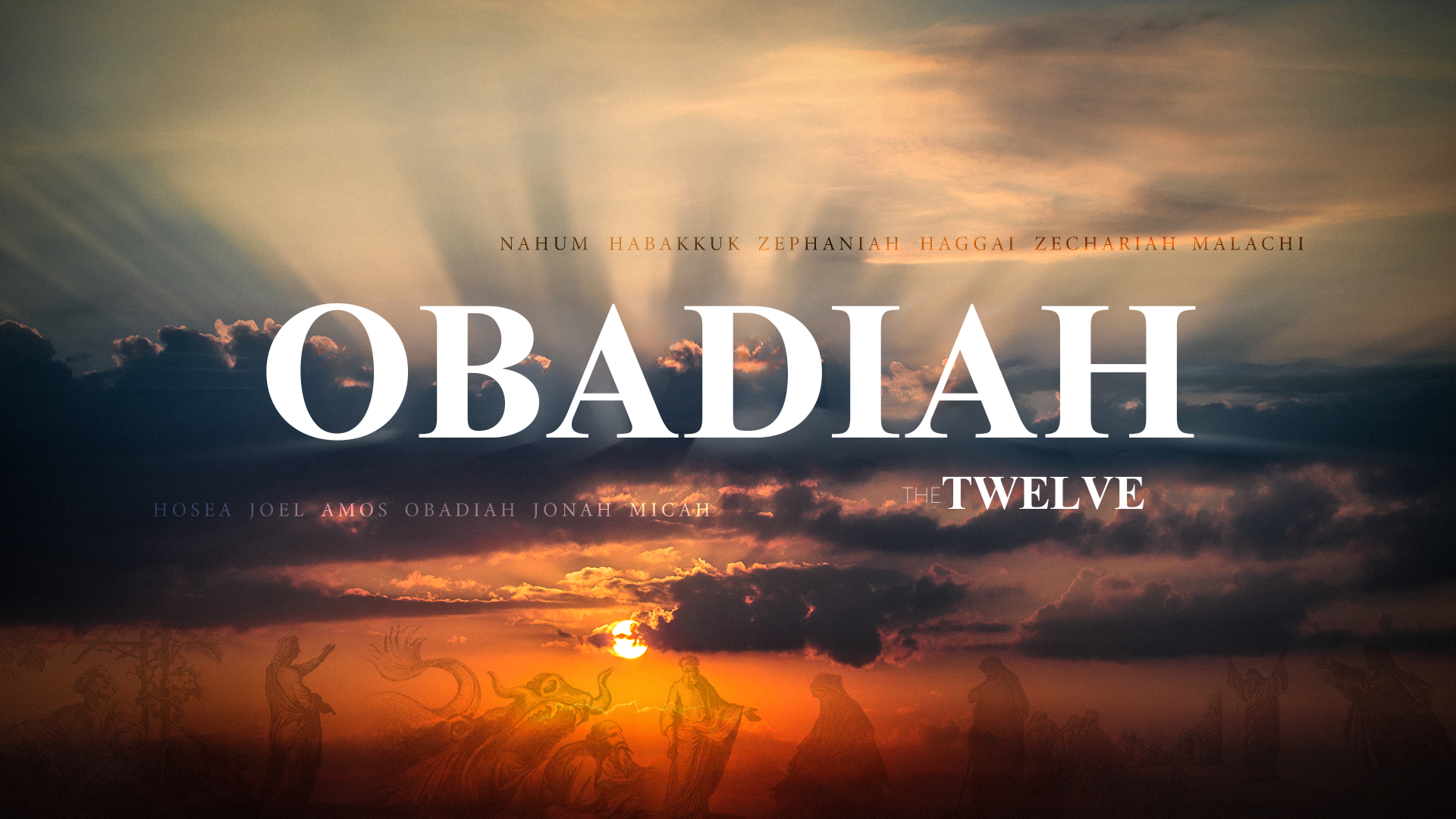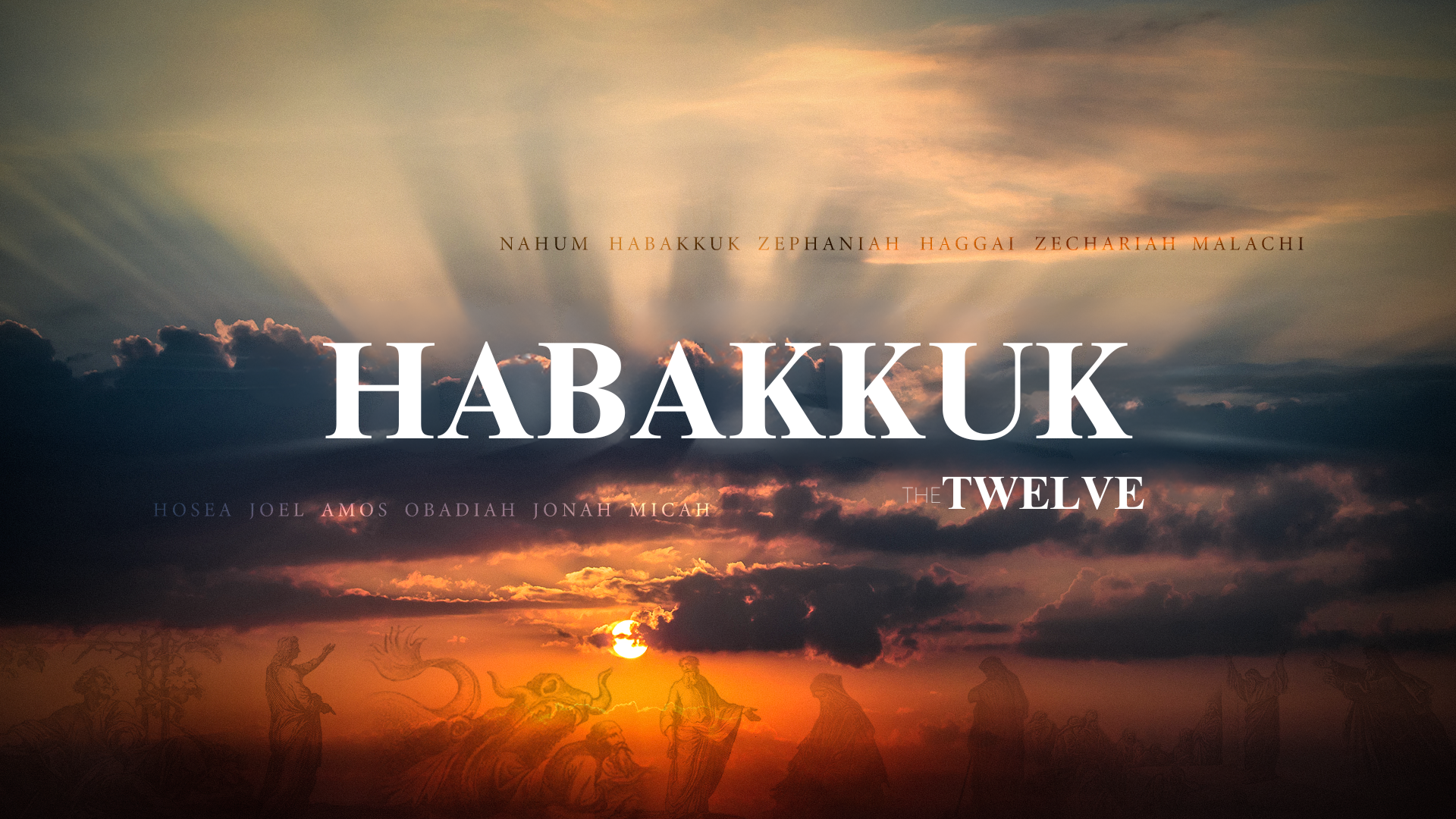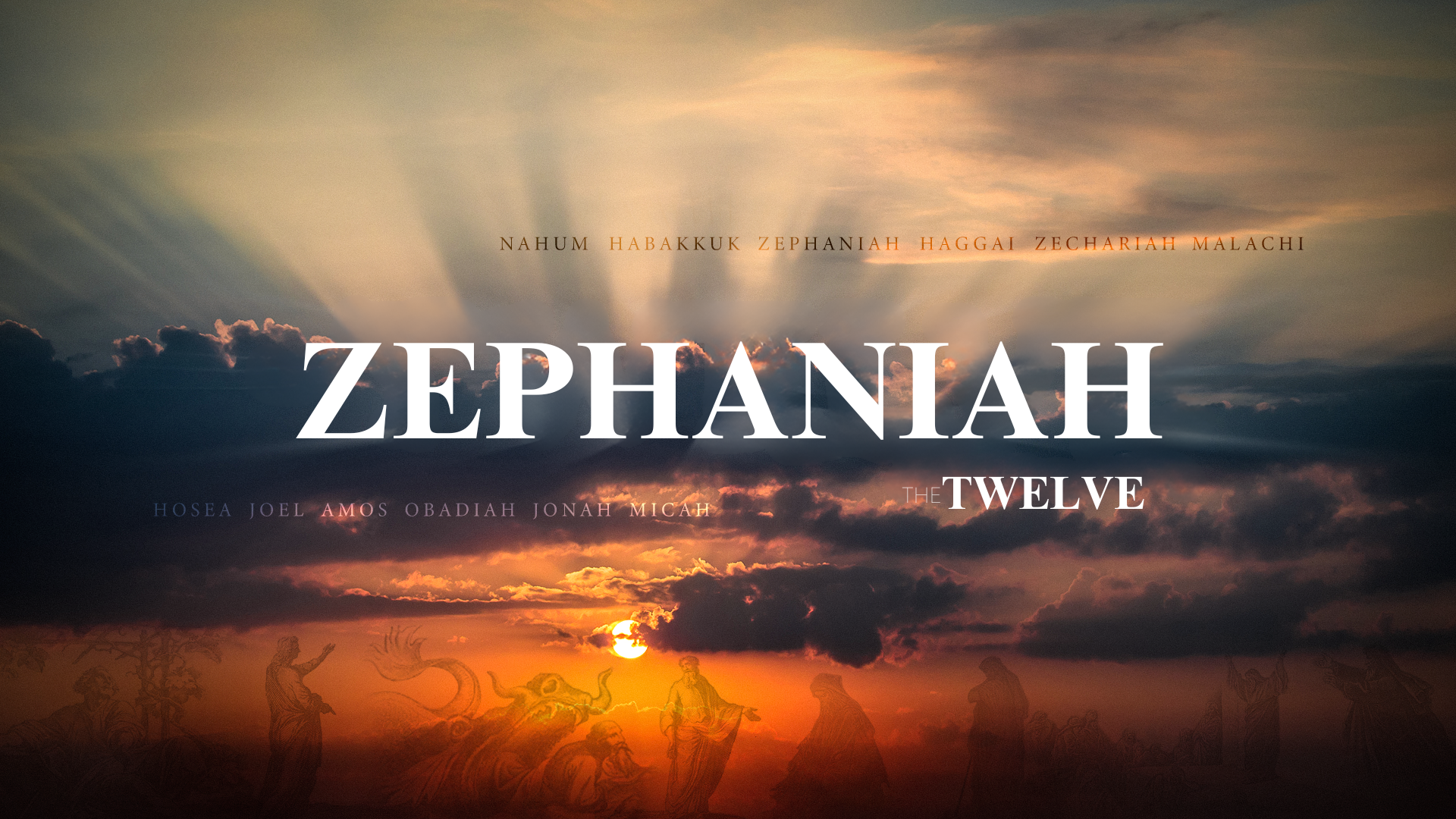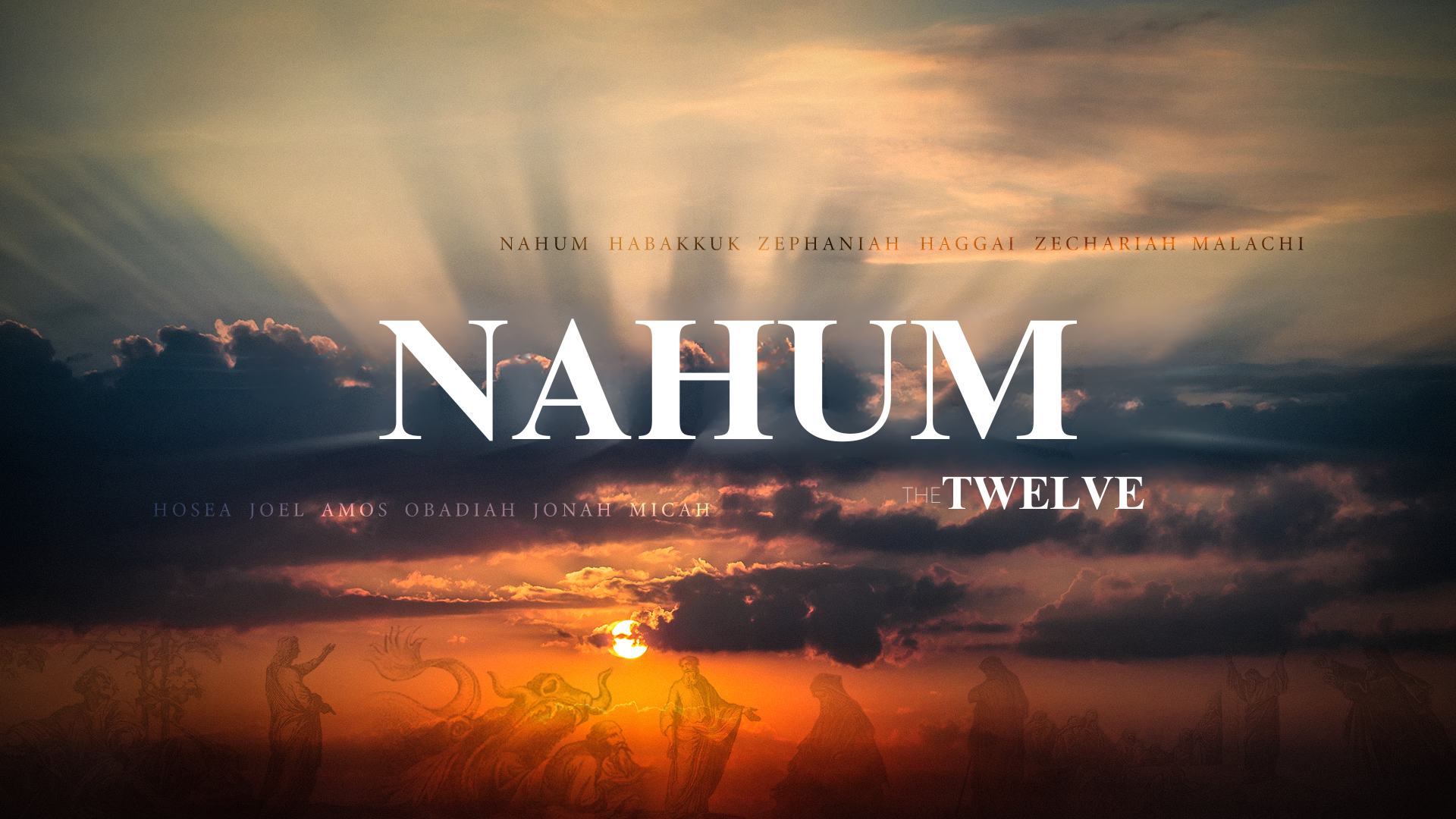MANUSCRIPT
Welcome back as we continue our study of The Twelve, as we reach the halfway point of the book of Amos...chronologically the second prophet to the northern kingdom of Israel, though Amos himself was a native of Tekoa, in the southern kingdom of Judah; we find him on the timeline just to the right of Jonah; next two books are Hosea and Micah
Let’s recall the context -- northern kingdom of Israel; 760 BC, just 20 years before the beginning of the deportation of Israel into exile in the farthest reaches of the Assyrian Empire, an exile from which national Israel would not return…
SLIDE 1 -- ISRAEL IN THE PERIOD OF THE TWELVE
As we return to this book after a couple of weeks away, let’s refresh where we are and what Amos has said so far
As Amos began his oracle in chapter 1, he uses a common prophetic formula -- “the words of Amos” -- and quickly followed with a series of judgments against virtually all the nations surrounding Israel -- Damascus, the capital city of Syria, to the north of Israel; Gaza, one of the four remaining royal cities of the Philistines, southwest of Israel on the Mediterranean coast; Tyre, one of the two principal cities of Phoenicia, also on the Mediterranean Sea to the northwest; and then Amos turns eastward, delivering God’s judgment to the Transjordan nations of Edom far to the south, Ammon to the east of the Jordan River, and Moab to the southeast of Israel; then Amos shocked Israel by pronouncing judgment on Judah as well, then on Israel itself
In chapters 3 and 4, Amos delivered the first two of three covenant lawsuit oracles as he began each with the phrase “hear this word” -- God now begins to make more clear the sins of the people...idolatrous worship of the false gods of the Canaanite nations that surrounded them, and unjust treatment of the poor by the influential and wealthy in Israel
And God makes more clear the exact judgment that would fall upon them -- destruction by a far superior military force followed by exile from the land
Let’s dive into the text...we’ll be covering chapter five today
As Amos begins this judgment speech, he uses a literary tool that frequently appears in Scripture, and in other ancient writings as well, called a chiasm, named for the Greek letter chi, which is shaped like our letter X -- the symmetry of the structure serves to focus the reader’s attention toward the center, the most significant point of the passage...here’s how verses 1 through 17 are arranged... (INSERT SLIDE)
Lamentation as announcement (vv. 1–3)
Admonition (vv. 4–6)
Accusation (v. 7)
Hymn (v. 8a–e)
Yahweh his name! (v. 8f.)
Hymn (v. 9)
Accusation (vv. 10–13)
Admonition (vv. 14–15)
Lamentation as announcement (vv. 16–17)
While the central focus is the name of Israel’s covenant God, everything else surrounding that hymn of praise in verse 8 and 9 relates to certain coming judgment...let’s look at the passage more closely
As Amos begins the third of his three judgment speeches, note the beginning phrase: “Hear this word” -- just like chapters 3 and 4 -- but now, the prophet adds intensity as he speaks of his word as a lamentation...
Hear this word that I take up over you in lamentation, O house of Israel:
2 “Fallen, no more to rise,
is the virgin Israel;
forsaken on her land,
with none to raise her up.”
16 Therefore thus says the Lord, the God of hosts, the Lord:
“In all the squares there shall be wailing,
and in all the streets they shall say, ‘Alas! Alas!’
They shall call the farmers to mourning
and to wailing those who are skilled in lamentation,
17 and in all vineyards there shall be wailing,
for I will pass through your midst,”
says the Lord.
These verses form the bookends, if you will, of the passage...with the use of the word “lamentation” Amos makes clear what he is doing -- he is presenting to the nation their own funeral dirge...he speaks of Israel as if it is already destroyed and dead
Such a dirge is typically constructed with lines set in a three-beat/two-beat pattern...the result was a halting or limping rhythm...describing Israel in this way must have shocked the people and leaders, since the nation then was strong and prosperous, as Assyria was just beginning to rebuild its strength...but what the people could not see, their covenant God saw clearly...Israel was as good as dead...God was already singing a funeral song over fallen Israel...
Amos begins this funeral song with a staggering truth: Israel would be reduced by an astonishing 90 percent...nine out of ten Israelites would either be killed in the Assyrian siege or taken into exile, out of the land...
In the squares and in the streets, there will be wailing as the people unwillingly join the funeral song begun by Amos as he anticipates the coming judgment of God...the professional mourners will be there, yes, but so will the farmers and the vinedressers...perhaps the last ones you would expect to come in from the fields and join the dirge...these verses combine to depict a nation entirely given over to weeping and grieving as the deathblow comes for Israel
And at this point you might expect God to say, “As the Assyrians pass through in your midst...” as they will serve as the instrument of God’s judgment, but He does not...He reminds Israel clearly that whomever Yahweh uses to wield His sword of wrath, it is in truth Almighty God Who wields it...Israel will not be judged by man, but by their God
Now the word of the Lord turns to admonition -- look at vv 4 through 6 and 14 through 15
4 For thus says the Lord to the house of Israel:
“Seek me and live;
5 but do not seek Bethel,
and do not enter into Gilgal
or cross over to Beersheba;
for Gilgal shall surely go into exile,
and Bethel shall come to nothing.”
6 Seek the Lord and live,
lest he break out like fire in the house of Joseph,
and it devour, with none to quench it for Bethel,
14 Seek good, and not evil,
that you may live;
and so the Lord, the God of hosts, will be with you,
as you have said.
15 Hate evil, and love good,
and establish justice in the gate;
it may be that the Lord, the God of hosts,
will be gracious to the remnant of Joseph.
This might seem odd when you consider chapters 3 and 4, and especially verses 2 and 3 of this chapter...that text sounds as if God has His mind completely made up to bring judgment upon Israel, and in one sense that is true...IF the people continue to refuse to hear the prophetic voice of warning, through Amos, and soon through Hosea and Micah, then yes, the northern kingdom will be severely disciplined and taken into exile...
Yet here, God still calls the nation to repentance with words of kindness, offering them a path to turn from their sins of idolatry and wickedness, and seek once again the Lord, and through His grace and mercy, to live...but what must they do?
He invites them to seek Him and live, to seek the Lord and live, to seek good, and not evil, and live...
Israel had to turn away from and reject their worship of false gods at the altars of Bethel, and Gilgal, and Beersheba in order to turn to their covenant God...they had to seek after Him, only Him, with an undivided heart...not like their wicked kings of the north, and not like Solomon, who despite his God-given wisdom was drawn into idolatry by his pagan wives and tried to live in both worlds, worshipping both the covenant God of Israel and the false gods of the Canaanites...the Israelites would learn, as we do from Jesus, that “no one can serve two masters” (Matthew 6.24)
If they would repent of their heinous sins, then God would forgive and restore them...
(verse 14)...the Lord, the God of hosts, will be with you, as you have said.
God help the people who SAY they belong to the living God but in truth do not belong to Him...even on the very edge of judgment, when they deserved only His fierce wrath, He offers grace...verse 15 says it well
it may be that the Lord, the God of hosts, will be gracious to the remnant of Joseph.
Even as the Assyrians were massing for battle, the Lord was saying to Israel, “seek Me and live...” -- Ezekiel 18.23 says this...
23 Have I any pleasure in the death of the wicked, declares the Lord God, and not rather that he should turn from his way and live?
Does God not desire us to repent from our sin? Does He not call us to justice, righteousness, and holiness, but even more, to Himself? He cries out, “Seek Me and live!”
We see the same truth in Romans 2.4-5
4 Or do you presume on the riches of his kindness and forbearance and patience, not knowing that God's kindness is meant to lead you to repentance? 5 But because of your hard and impenitent heart you are storing up wrath for yourself on the day of wrath when God's righteous judgment will be revealed.
God’s kindness is intended to draw us away from our sins and lead us to changed hearts which desire to know and love Him...but if we presume on that grace, believing somehow that He is unaware of our rebellion, or that He is powerless to act in judgment, or that He loves us too much to discipline us, if we do not see His kindness and longsuffering for what it is -- an invitation to come to Him, to seek Him -- then there is but one path left to take -- the one that leads our hard and impenitent hearts to encounter not God as a loving Father running to welcome us home, but instead to encounter God as a righteous and wrathful Judge...whose unquenchable fire will break out to devour the nation...
And He warns us of the consequences of continued faithless disobedience...He tells us clearly that idolatry at the false altars, worship of the false gods at Bethel, and Gilgal, and Beersheba don’t lead to God...the lesson for us is clear, isn’t it...we never find the true and living God by turning to our own ways, expecting to find Him on our own terms...just as the idolatrous worship centers at Bethel, Gilgal, and Beersheba were going to be destroyed, so too will the false idols of our world, the places and gods to whom we turn instead of the living Lord...we must seek Him, God, and God alone...Jeremiah 29.13 assures us...
13 You will seek me and find me, when you seek me with all your heart.
Now Amos turns to the accusations against Israel...
7 O you who turn justice to wormwood
and cast down righteousness to the earth!
10 They hate him who reproves in the gate,
and they abhor him who speaks the truth.
11 Therefore because you trample on the poor
and you exact taxes of grain from him,
you have built houses of hewn stone,
but you shall not dwell in them;
you have planted pleasant vineyards,
but you shall not drink their wine.
12 For I know how many are your transgressions
and how great are your sins—
you who afflict the righteous, who take a bribe,
and turn aside the needy in the gate.
13 Therefore he who is prudent will keep silent in such a time,
for it is an evil time.
Within this series of righteous accusations, there are two distinct parts: the recounting of their sins in verses 7, 10-11a, and 12 -- and the futility of their sins in verses 11b and 13...let’s look at both
“Justice” (Heb ‘mish - pat’) is the quality of being free from favoritism, self-interest, bias, or deception; especially conforming to established standards or rules; “justice” was understood as the standard of God and His Law in action in Israelite society, especially regarding legal matters and the operation of the court system, which took place in the gate of the city, thus the mention of “gates” in this passage; it was mandated as a principle of Jewish society, both for the Israelites themselves and the sojourners among them, with special care provided for widows and orphans...
Exodus 23.2-3, 6-9
2 You shall not fall in with the many to do evil, nor shall you bear witness in a lawsuit, siding with the many, so as to pervert justice, 3 nor shall you be partial to a poor man in his lawsuit.
6 “You shall not pervert the justice due to your poor in his lawsuit. 7 Keep far from a false charge, and do not kill the innocent and righteous, for I will not acquit the wicked. 8 And you shall take no bribe, for a bribe blinds the clear-sighted and subverts the cause of those who are in the right.
9 “You shall not oppress a sojourner. You know the heart of a sojourner, for you were sojourners in the land of Egypt.
This is a solid definition of biblical justice: that which complies with, is consistent with and obedient to, the Word of God, particularly regarding societal and personal relationships
“Righteousness” (Heb ‘s-da - qah’) is defined as adherence to what is required according to a standard, such as a moral standard; it is closely aligned with the ideas of honesty, justice, and even community loyalty; it represents the right and proper application within society of the principles of justice
Taken together, as they are in these verses and again in verse 24, they encompass a just and right ordering of society according to the word of the Lord, including equality, submission to authority, compassion, kindness, and even covenant love
The violation of these basic principles of community and society are listed by God in the accusations
• The wealthy and powerful had turned the justice rightly sought by the poor into bitterness in their mouths
• They had such complete disrespect and disregard for righteousness that they had figuratively thrown it to the ground
• They hate those who bring to the gates of cities, in our day the courts, true pleas for justice, likely because they fear those charges could expose their greed and cruelty as they turn them aside, meaning they refuse to hear their cases, perverting justice
• They figuratively trample on the poor through unjust and excessive taxes and fines
• They accept bribes to settle cases in favor of the wealthy
And so God shows them the futility of their actions...all the wealth they have accumulated will not benefit them...they will not eat from their orchards or olive groves, nor drink wine from their vineyards...and the irony is so poignant...for in the same way the people of Israel enjoyed fully developed cities and towns with mature crops and vineyards when they first occupied the promised land, so will those who will take their place as the Israelites themselves are taken into exile in Assyria
This is perhaps the most sobering statement in the chapter...verse 12
12 For I know how many are your transgressions and how great are your sins—
God, not the prophet, God speaks and directly says to the rebellious people, “I KNOW HOW MANY ARE YOUR TRANSGRESSIONS AND HOW GREAT ARE YOUR SINS...”
Church, hear me -- God knows your thoughts -- He knows your motives -- He knows your words -- He knows your actions -- God knows your sins, the quiet ones, the hidden ones, the sins you think only you know, for God knows your heart...He sees and knows everything about you...He knows you better than you know yourself...He is a loving God, gracious and merciful, yes, but He is also a holy God, and a God who calls all those who say they belong to Him to be holy as well...listen to Hebrews 4.12-13
12 For the word of God is living and active, sharper than any two-edged sword, piercing to the division of soul and of spirit, of joints and of marrow, and discerning the thoughts and intentions of the heart. 13 And no creature is hidden from his sight, but all are naked and exposed to the eyes of him to whom we must give account.
We are exposed to His eyes...He sees us...and more, it is to Him that we are accountable
And the people of Israel were about to discover what we may discover, too...the truth of the words of Hebrews 10.30-31
30 For we know him who said, “Vengeance is mine; I will repay.” And again, “The Lord will judge his people.” 31 It is a fearful thing to fall into the hands of the living God.
Before judgment falls, while repentance and grace are still on the table, let us run to the Almighty God, for ourselves and our people, and seek Him and live
Verse 13 concludes this accusation with advice...
13 Therefore he who is prudent will keep silent in such a time, for it is an evil time.
The “evil time” represents the time of judgment when the nation would be taken into exile, and the prudent, or wise, are silent as they submit to the judgment that Yahweh brings upon them...
Now we come to the central point of this passage...the praise hymn to Almighty God
8 He who made the Pleiades and Orion,
and turns deep darkness into the morning
and darkens the day into night,
who calls for the waters of the sea
and pours them out on the surface of the earth,
the Lord is his name;
9 who makes destruction flash forth against the strong,
so that destruction comes upon the fortress.
Who is this God, the covenant-keeping God, the Almighty One?
He is the Maker of Heaven and Earth, the One who formed the constellations, who brings dawn from the darkness and day into night, who formed the sea and the dry land, setting the boundaries for them both, the One who humbles the proud and arrogant and destroys the strongholds of sin and rebellion, Who crushes the false gods of the wicked and Who will not give His glory to another...the Lord is His Name!
Now Amos leaves the chiasm of verses 1 through 17 and concludes this judgment speech with verses 18 through 27
18 Woe to you who desire the day of the Lord!
Why would you have the day of the Lord?
It is darkness, and not light,
19 as if a man fled from a lion,
and a bear met him,
or went into the house and leaned his hand against the wall,
and a serpent bit him.
20 Is not the day of the Lord darkness, and not light,
and gloom with no brightness in it?
Amos calls out to the people who still presumed on their heritage to protect them from judgment as he says “Woe to you who desire the day of the Lord!”
For the wicked, the last day they should desire is the day of the Lord, for it will be a day of inescapable judgment...it is not deliverance, but discipline...it is not light, but darkness
Amos describes it as escaping one threat or danger, only to be overtaken by another...for Israel, their day of the Lord is not a day to be desired, but one to be feared, for that day will bring their punishment
God now speaks in verses 21 through 23
21 “I hate, I despise your feasts,
and I take no delight in your solemn assemblies.
22 Even though you offer me your burnt offerings and grain offerings,
I will not accept them;
and the peace offerings of your fattened animals,
I will not look upon them.
23 Take away from me the noise of your songs;
to the melody of your harps I will not listen.
All that Israel did in their false idolatrous worship, and in fact the religious rituals by which they tried to worship Yahweh, was futile
Look at the words God chooses: “hate” -- “despise” -- “take no delight in” -- “will not accept” -- “will not look upon”
I can imagine the leaders and the people saying, “but why not? Are we not worshipping you? Are you not pleased with our sacrifices and worship songs?”
The short answer is “no!” -- the stunning sin of Israel as they participated in syncretistic idol worship was plainly known to God, and He would have none of it...their songs were but noise to Him, and He would not listen
Why?
Because the lives of the people of Israel were not consistent with their words...they were hypocrites, saying religious words and doing religious rituals, but not living lives of truthful integrity before God...because of their idolatrous worship and their abuse and defrauding of the poor and weak, the wealthy and powerful leaders and people of the nation were now hearing their own funeral song as they faced a simple choice: turn from their sin and seek God that they might live, or reject His call of grace and mercy and continue down the path of judgment, wrath, and destruction
The covenant God of Israel gives them a clear and compelling command
24 But let justice roll down like waters, and righteousness like an ever-flowing stream.
The rich had denied justice to the poor, fueled by the greed of the wealthy, unjust economic oppression and disenfranchisement led to unjust fines and penalties and outright theft, enabled by bribery and denial of legal recourse in the gates of the cities of Israel to the poor...the people had abandoned righteousness, casting it to the ground as worthless, forsaking a right and just ordering of society under God’s Law in order to accumulate wealth at the expense of others...now, once more, God calls to them to turn from their sin before judgment and wrath become inevitable
The final words of Amos in this judgment oracle are as challenging...
25 “Did you bring to me sacrifices and offerings during the forty years in the wilderness, O house of Israel? 26 You shall take up Sikkuth your king, and Kiyyun your star-god—your images that you made for yourselves, 27 and I will send you into exile beyond Damascus,” says the Lord, whose name is the God of hosts.
Amos links the present apostasy of Israel to the Exodus experience and the taking of Canaan that followed...
Certainly there was comprehensive instruction on the requirement of animal sacrifice in the Mosaic Law...but notably, there is no mention of its practice in the forty years from the people’s refusal to enter Canaan through the death of that generation, save Caleb and Joshua, and the eventual crossing of the Jordan into the promised land...at the same time, there was certainly evidence of idol worship...for their sins of idolatry and failing to worship the Lord God, He promises to send them into exile
As we close, I would like to highlight two key points
The first is this: that believers and unbelievers alike must respond to the gracious offer of God to “seek Him and live” -- that our lives must be characterized by a quick response to the call to repent of the public -- and private -- sins of which we are all guilty; even on the brink of judgment, as long as it is called today, I urge you, turn to Jesus Christ
The second is this: we must prepare ourselves to understand and wrestle with the issues of our day from the vantage point and perspective of God’s word
Our world and society are marked by great concern and discussion about issues of justice and equity...how are we as Christ-followers to deal with these things?
Biblical justice, justice as the Word of God states it, is that which is just according to the word of God, particularly regarding relationships...the breakdown of biblical justice is well documented in this book and other biblical books...and make no mistake, biblical justice is an imperative...Micah 6.8
He has told you, O man, what is good;
and what does the Lord require of you
but to do justice, and to love kindness,
and to walk humbly with your God?
But in our world today, “justice” has taken on a different meaning, especially the term “social justice”
Defined by the Oxford Dictionary of the English Language, “social justice” is a noun, chiefly used in politics and philosophy; it refers to justice at the level of a society or state as regards the possession of wealth, commodities, opportunities, and privileges. (See also distributive justice)
Social justice as a present-day term is a matter of state and public policy regarding distribution and redistribution of wealth, power, and privilege to and among groups; it distinguishes between equality and equity, which do not mean the same thing; and it frames the world through the lens of oppressors and oppressed groups
I raise these definitions for this reason -- as Christians in our world, we must be aware and very careful of the use of terms that appear in the Bible but are then redefined by the world
Christians must be completely committed to what the Bible says about justice as a matter of the Word of God, and the heart of man, and the gospel of Jesus Christ...but as our society, and particularly academics and opinion leaders in Western culture use the term “social justice,” do not be taken in and believe that the two terms mean the same thing -- they do not
Biblical justice speaks to the ethical imperatives of society and is derived, as a part of the Word of God, from the character of God
Social justice is a secular academic construct that attempts to deal primarily with perceived inequity through wealth and power distribution among groups
Keep your focus on the gospel and person and work of Jesus Christ as he transforms the lost human heart, and you will see true justice in the world...and that is the only way that end will come about...as we learn to pray in the Sermon on the Mount, “Thy Kingdom come, Thy will be done, on earth as it is in heaven” -- as we will see when we get to the book of Micah, God Himself has called us to “do justice” -- and with God’s strength, we shall

Taught by Mike Morris
Associate Pastor of Verse By Verse Fellowship
The Twelve Series
